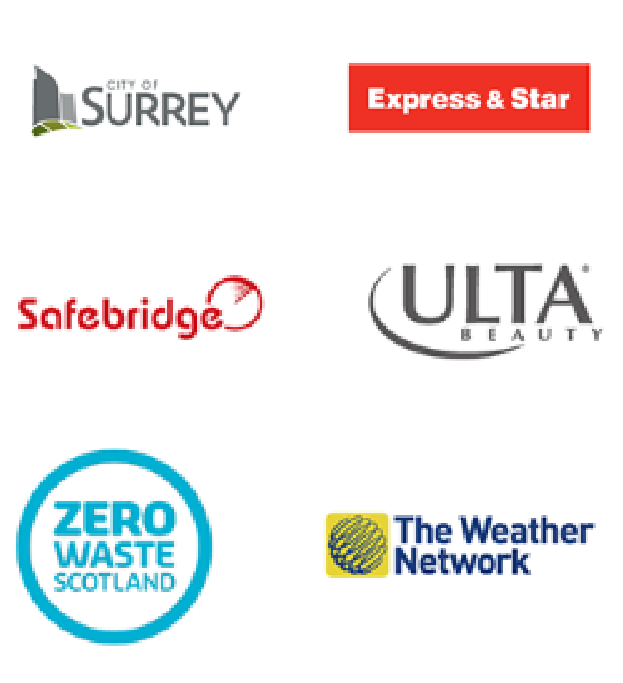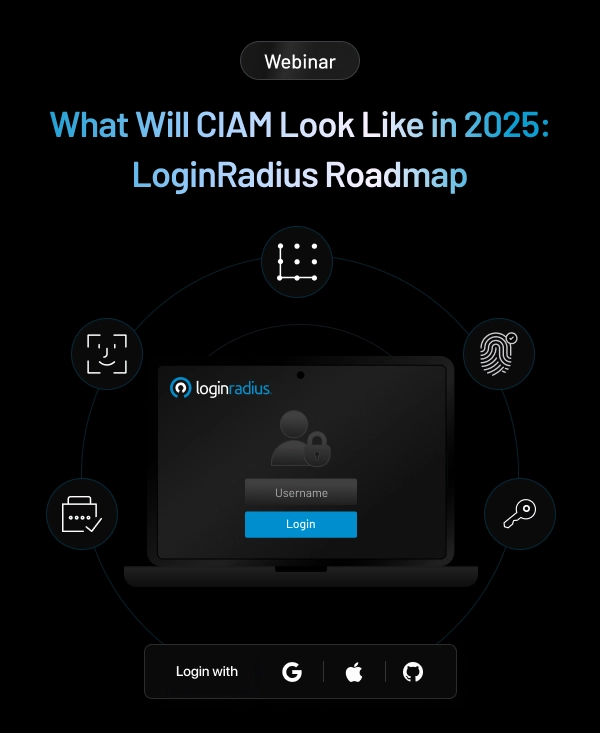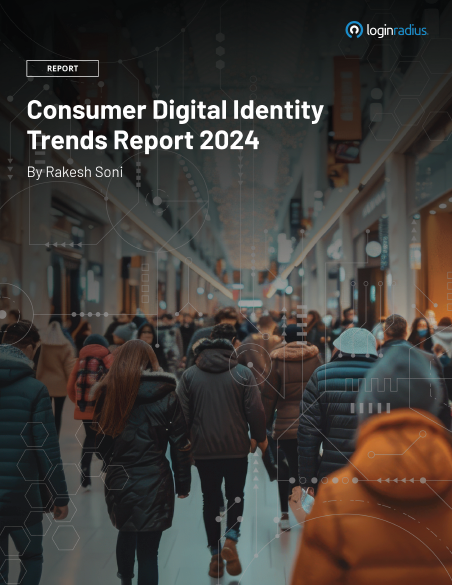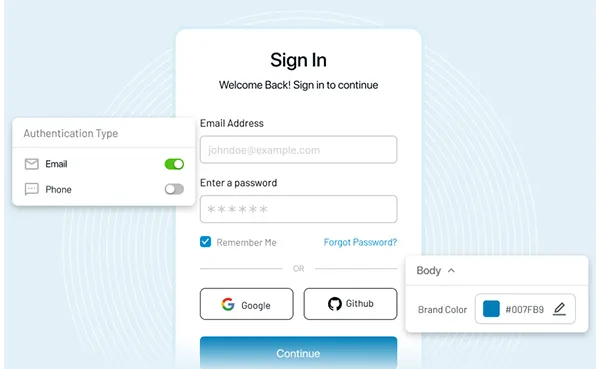Cybersecurity awareness helps protect enterprises, employees, and customers. That’s why, more than ever, enterprises are working hard to protect sensitive data against breaches and hacks. Likewise, consumers want to change unsafe habits, so they can better protect their personal and vulnerable information.
One answer may be a cloud-based customer identity and access management (CIAM) solution, like the one we have built at LoginRadius. This would enable more security features like single sign-on, passwordless logins, and multi-factor authentication.
5 Cloud Security Challenges that Businesses Face Today
1. DDoS attacks
DDoS or Denial-of-Service attacks are the number one concern of every cloud provider. These attacks cripple server performance and can take websites down for hours or days, hurting revenue and customer satisfaction. Meanwhile, attackers don’t need to invest in expensive hardware; they can relatively easily launch DDoS attacks over the internet.
To combat cloud-based DDoS attacks, you'll need a responsive platform that can detect possible breaches, identify abnormal network behavior, and block DDoS attacks before they take down your website.
2. Lack of cloud security architecture
One of the main reasons organizations move to public clouds is the ability to seamlessly apply cloud security measures that are built into the cloud environment and take into account policies, identity, and compliance requirements.
Cloud migration is a complex and challenging endeavor. Therefore, every aspect of the migration must be treated carefully in order to avoid critical business challenges such as data loss and security breaches.
3. Data breaches
This is the most common adoption concern when it comes to moving to cloud infrastructure. After all, IT professionals have had full control of everything related to security when it comes to on-premises infrastructure.
It is important that you choose a provider with a proven track record in implementing strong security protocols in their own data centers. This will ensure that the security controls you have in place today remain intact and that any new, vital security controls are added as well.
4. Insecure interfaces and APIs
Cloud computing providers are expected to ensure the security of customer resources, even during times of high-volume system changes. This goal is particularly difficult because security must be built into the cloud API. Cloud API providers must rely on authentication and authorization tools to validate requests.
"Poorly designed APIs may lead to misuse of information or even data breaches. When an organization makes a change to an API, it must take into account how that change affects both internal and external consumers."
5. Lack of proper education
To keep your cloud security as strong as possible, you need to prioritize education, not just around best practices for traditional security but also on industry trends. And this is what most enterprises lack today.
Team members should have a good understanding of the basics to start. For example, what is cloud computing and why do they need it? Then the team should identify experts within the organization to teach their colleagues more advanced cloud security, such as industry best practices.
How safe is cloud computing?
Cloud security (AKA cloud computing security) is a set of policies, technologies, applications, and controls used to protect data and other material that is stored or run in the cloud.
It’s safe because your files are stored on servers all around the world. This is called a ‘distributed system.’ Your data is encrypted when it travels over the internet, so it’s completely private and protected from hackers and thieves.
Luckily, SaaS companies like LoginRadius specialize in cloud security that keeps customer data secure and private. We also offer IDaaS with a number of user authentication services like multi-factor authentication, single sign-on, and identity management.
What is IDaaS?
IDaaS is a software platform that focuses on protecting and managing digital identities. At LoginRadius, cloud security is at the core of our customer identity and access management (CIAM) platform. Cloud security is built into the foundation of everything we do—and we have the credentials to prove it.
Which security credentials matter?
LoginRadius has successfully passed multiple audits and earned several certifications in recognition of our commitment to security. These include SOC 2® and ISAE 3000 Type II audits, which we completed in July and August. The SOC 2, issued by the American Institute of CPAs, is considered to be the highest standard for ensuring the security, availability, processing integrity, and confidentiality of customer data. Meanwhile, the ISAE 3000, issued by the International Federation of Accountants, is a standard for assurance over non-financial information.
In August, we also achieved the ISO 27001 Information Security Standard Accredited certification, which sets the international industry-standard for establishing, implementing, maintaining, and continually improving an information security management system.
Our Privacy Shield compliance certification recognizes our compliance with data protection requirements when transferring personal data from the EU and Switzerland to the US.
In addition, we hold a Security Trust Assurance and Risk (STAR) certification issued by the Cloud Security Alliance (CSA). CSA describes the STAR program as the most powerful cloud security assurance program, "encompassing key principles of transparency, rigorous auditing, and harmonization of standards."

Why choose cloud computing?
Cost-effectiveness
Typically, on-premises security solutions require a substantial investment to engineer and maintain.
By contrast, with cloud computing, you don't need to pay anything upfront. That's because cloud security tools are built and operated by a third-party vendor. You only pay for what you need or use through a monthly or annual subscription.
Maintenance
With cloud security, a third-party vendor is responsible for maintaining the system, not you. This vendor is the one spending their money and time on upgrading, integrating, and optimizing the system. The vendor also keeps the technology up-to-date, leaving you free to focus on growing your business.
Scalability
Cloud servers are made to support massive sign-ins and sudden, dramatic surges of user actions (during a major sports game or popular TV voting system).
In fact, the LoginRadius Identity Platform was designed with service provider-class scale in mind. The distributed CIAM network has regularly experienced peak transaction volumes in excess of 150,000 logins per second, and typically handles 10,000 requests per second with less than 500 milliseconds latency. Check our live status to see more.
Compliance
Any enterprise that stores customer data must comply with global privacy regulations. These regulations govern how you seek customer consent to use their data and what you do with that data.
The European Union's General Data Protection Regulation (GDPR) is just one example of this kind of legislation. With cloud security, your third-party vendor is responsible for compliance and has the expertise to do so.
At LoginRadius, our Identity Platform complies with all significant data security and privacy laws and with the terms of various social networks. We monitor these laws regularly for changes or updates. And being that our cloud data centers are in over 35 locations worldwide, you can choose where your customer data is stored to comply with local data regulations.
Secure Data Access
Customer access to their data is a requirement of the California Consumer Privacy Act (CCPA), and non-compliance can result in hefty fines. However, data stored on cloud services is instantly available to authorized users. On the cloud, centralized data can be backed up regularly and restored quickly in case disaster recovery is ever necessary.
Better Performance
Just as cloud technology powers its way into transforming entire industries, so does its technology progressively cut down on latency times and work to improve overall performance.
Moreover, a third-party data center provider can speed up your hardware refresh cycles and deliver the latest high-performance equipment. With a third-party data center provider, all you need to do is add more power or expand the floor space when you need it. You don’t have to worry about maintaining huge backup spares, or worry about the manufacturer’s end-of-life (EOL) replacement schedules.
Speed to Market
Cloud computing enables enterprises to provision resources for development and testing across a wide variety of environments. Once they are complete, applications can be rapidly deployed into an operational environment hosted on the cloud for a smooth launch.
As these environments feature elastic scaling capabilities, organizations no longer need to worry about an incorrect capacity estimate impacting their ability to scale on demand.
Cloud Security Alliance
The Cloud Security Alliance is the world's leading organization dedicated to defining and raising awareness of cloud security best practices.
LoginRadius is a member, along with other experts in cloud security. Together, CSA members share up-to-date developments about the cloud computing environment. We recognize emerging security risks so that we can improve cloud security for everyone.

















